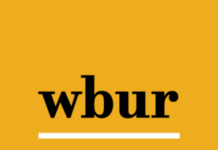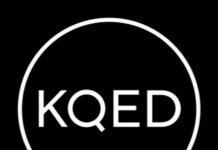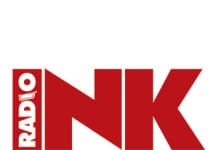
(By James Bahm) I met with a new sales rep earlier this week, and during the role play, I noticed something he was doing. Once I pointed it out, he immediately said it must be why he was taking longer to close new orders. All our sales are over the phone because we’re talking with customers all over the country and meeting face-to-face is not an option.
Here are a few things I picked up on in that coaching session that you can use today to close more sales and land new business:
You are an Expert. Sound like it.
Customers come to you because they want to reach your audience. You are the marketing and media expert, and they expect you to know more than they do. (Yes, there are those customers who watch a YouTube video, or read some obscure article online who think they know more, but this is the exception, not the norm.) This is especially so with the creative, but that is a topic of another column.
Earlier this year, I ruptured my biceps tendon. When I met with the surgeon, he asked me several direct questions, got right to his exam, and ordered an MRI. I had no doubt I’d chosen the right doctor.
Know your audience. If you have a cluster in the market, you need to have the demos down, and you should be able to ask direct questions about what you do and not waste time talking about what you do.
A good example of this is asking: Do you find that a lot of your customers spend time looking at their phones when they shop in your store? This is a great lead-in question for several digital offerings like geofencing, geo-conquesting, search retargeting, site retargeting, and email marketing to name a few.
Eliminate Fillers
When my colleague was leading our sales conversation, he um sort of um kind of paused some and um really like um stumbled to find um his words. When you do this, you sound ill-prepared and very unsure of yourself, with no confidence in what you are saying. Customers will sense this and end the meeting without an order.
If you’re ever asked a question, and you need time to think of the answer, immediately say this: That’s a great question, what makes you ask? Never ask them why they asked the question, ask what makes them ask. It’s less invasive and gives them time to further explain their reasoning, and you’re likely to get more information out of them. All of this will allow you to better prepare a response.
Be Honest
If they ask you something, and you know full well that there is zero chance of it happening, tell them. I had a conversation the other day with a customer who asked me if something would happen by the end of the year and I said this: As much as I’d like to tell you what you want to hear, to do so would make me out to be something I’m not, which is a liar. The customer will understand. Never take the easy out and say oh I’ll see if that can happen… only to call them later and say blame it on someone in another department for not letting it come to fruition. Radio station cubicles are full of reps who make promises to close a sale, yet they never intend to follow through on those promises.
Let your customers know what will and what won’t happen. If there is a two-week turn around for new credit to be approved and all new customers must pay the first month in advance, then say this up front. And let them know this in a way that conveys there is no negotiating different options.
Customers will respect you more for being honest and likely stay with you because of your honesty. This also means having the integrity to say you can’t help someone when you know that there isn’t anything you can do to help them; like when the customer says they can spend $500 a month on your top-rated station, but that won’t buy two spots in morning drive. They may have to settle for one of your other stations.
Be Kind, Respectful, Courteous, and Polite – Especially When You Have Bad News
One of my colleagues had a horrible call the other day and the customer was upset at something my colleague had no control over, which was the turnaround time. He asked me what the best way is to approach that, and I said: The next time you’re asked that question let the customer know that your first responsibility is to be honest and transparent with information which means that even though they may not like your answer, it doesn’t make it any less true. You might think this is counter-productive, but it’s not.
In his book “Never Split the Difference“, Chris Voss says that the moment you call out a negative, you diminish it every time. Call out the negative as early as possible and let the customer know they’re likely to not like your answer, then give them the answer they won’t like. I have bad news, and you’re likely to be upset to learn that we’ll need to wait two weeks for your credit application to be approved, which means if you want this to air by the end of the week, we’ll need you to pay the first month in advance.
How someone acts and responds to what you say is 100% a reflection on them. How you reply is 100% a reflection of who you are.
Do not compromise your career to soothe your ego to always be right or be the good guy. If a customer opts to not do business with you because you were honest and told them something they didn’t want to hear, let them leave. No business is worth the headache.
Remember this: kindness costs you nothing, and it’s priceless to the recipient. You’ll go much further in your career if you remain a person of character, than just being a character.
Bottom Line: Being the expert doesn’t mean always being right, it means always doing what’s right, even if it means not closing business.
James Bahm has over 30 years’ experience in broadcasting, sales and marketing, and recruiting and hiring. He is the author of Don’t Yuck My Yum – a Professional Development and Sales & Marketing book – which is available on amazon.com. He can be reached via email: [email protected].








